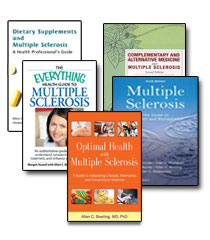Ayurveda, meaning “knowledge (or science) of life,” is the oldest known medical system still practiced today. It was developed in India thousands of years ago, and, although it has been modified over the years, it is still widely practiced there. It has been popularized in the United States as a result of the work of Maharishi Mahesh Yogi and Dr. Deepak Chopra.
The practice of Ayurveda incorporates aspects of science, medicine, religion, and philosophy. The practice focuses on the idea of a healthy balance of mind, body, and spiritual awareness. Three physiological principles, or doshas, are believed to regulate these entities. Imbalance of the doshas is thought to result in disease, and thus treatments are intended to restore balance. It is also believed that there is a central life force, called prana, which exists within people.
Treatment Approach
Diagnosis in Ayurveda is based, in large part, on pulse and tongue evaluation. Therapy can include diet, exercise, supplements, and lifestyle changes. Other treatment options include breathing exercises, massage, yoga, and meditation. Transcendental meditation (TM) is one, well-known form of Ayurvedic meditation. In Ayurveda, disease prevention is achieved through panchakarma, the “five processes.” These “processes” include sweat baths, massages, enemas, vomiting, and bloodletting with leeches.
Outside of India, there are two main schools of Ayurveda. Maharishi Mahesh Yogi’s Maharishi Ayur-Veda places great emphasis on meditation, whereas Dr. Deepak Chopra’s school uses meditation as well as other Ayurvedic methods.
Ashwagandha, an Ayurvedic supplement that is derived from the roots of the Withania somnifera plant, is sometimes been specifically recommended for the treatment of MS.
Evaluation in MS and Other Conditions
There are no published clinical studies that have specifically evaluated the effectiveness of Ayurveda on MS or any MS-associated symptoms. Some individual components of Ayurveda have been evaluated, including meditation, yoga, and massage. These may provide some relief of MS-associated fatigue, pain, spasticity, anxiety, and depression.
Ashwaganda, an Ayurvedic herb which is sometimes specifically recommended for people with MS, has not been clinically evaluated and has several possible side effects (see below). Other Ayurvedic supplements have shown some possible benefits in the treatment of liver inflammation, heart disease, breast cancer, and lung cancer.
Currently, several collaborative research projects are underway investigating the efficacy of Ayurvedic practices, including panchakarma therapies. The National Institute of Ayurvedic Medicine is working with the Central Council for Research in Ayurveda and Siddha Medicine, the National Cancer Institute, the Mount Sinai School of Medicine, and the Richard and Hinda Rosenthal Center for Alternative and Complementary Medicine at Columbia University.
Adverse Effects
People with MS should not use Ayurveda instead of conventional medicine. Some Ayurvedic herbal preparations contain lead, mercury, arsenic, or other heavy metals. These should not be used, even if the practitioner claims they have been “deactivated” by heat. One study found that one-fifth of Ayurvedic preparations had potentially dangerous levels of heavy metals.
Some Ayurvedic remedies have been associated with liver or kidney toxicity. These herbs include Cassia auriculata, Crotolaria juncea, Crotolaria verrucosa, Holorrhena antidysenterica, and Heliotropum species. The use ofHeliotropum species has been associated with death. Aegle marmelos, Hemidesmus indicus, Terminalis chebula, and Withania somnifera have resulted in kidney or liver toxicity in animals.
Ashwagandha is sometimes recommended to treat MS. However, it has been shown to have immune-stimulating effects, which could conceivably worsen MS or interfere with FDA-approved injectable MS medications. These include interferons (Avonex, Betaseron, and Rebif), glatiramer acetate (Copaxone), and natalizumab (Tysabri). Chemotherapy drugs that are used to treat MS may also be affected, such as mycophenolate (CellCept), azathioprine (Imuran), mitoxantrone (Novantrone), and methotrexate. Furthermore, this herbal preparation has sedating effects, which could exacerbate MS-associated fatigue or increase the sedating effects of certain medications. These sedating medications include lioresal (Baclofen), diazepam (Valium), and tizanidine (Zanaflex). Ashwagandha may also interfere with blood-thinning and thyroid medications.
Other Ayurvedic compounds have been shown to have immune-stimulating properties. These include Boerhavia diffusa, Phyllanthus emblica, Nimba arishta, Maharishi-4, and Maharishi-5. Although they have not been clinically proven to be harmful to people with MS, they do represent a theoretical risk.
Summary
Ayurveda is a healing system composed of many different practices. Generally, these practices have a low risk and moderate cost. Some practices, such as massage, meditation, and yoga, have low risk and have been suggested to have beneficial effects for MS-associated symptoms, including fatigue, spasticity, anxiety, depression, and pain. Other components of Ayurveda carry a much greater risk. The use of specific supplements has the potential to cause serious side effects, including worsening of MS. These supplements have not been fully studied in MS or any other medical condition. Ashwagandha, the herbal supplement sometimes recommended by Ayurvedic practitioners specifically for treating MS, could theoretically worsen the disease. It may also decrease the therapeutic effects of certain medications, increase the side effects of other medications, and increase MS fatigue. Ayurveda should not be used instead of conventional medicine, but some Ayurvedic practices may be beneficial complementary treatment options.
References and Additional Reading
Books
Bowling AC. Complementary and Alternative Medicine and Multiple Sclerosis. New York: Demos Medical Publishing, 2007, pp. 50-54.
Fetrow CW, Avila JR. Complementary and Alternative Medicines. Philadelphia: Lippincott, Williams, and Wilkins, 2004, pp. 58–60.
Jellin JM, Batz F, Hitchens K. Natural Medicines Comprehensive Database. Stockton, CA: Therapeutic Research Faculty, 2005, pp. 82–83.
Kaplan GP. Ayurvedic medicine. In: Oken BS, ed. Complementary Therapies in Neurology. London: Parthenon Publishing, 2004, pp. 145–158.
Manyam BV. Ayurvedic approach to neurologic illness. In: Weintraub MI, Micozzi MS, eds. Alternative and Complementary Treatment in Neurologic Illness. New York: Churchill Livingstone. 2001, pp. 68–74.
Navarra T. The Encyclopedia of Complementary and Alternative Medicine. New York: Checkmark Books. 2005, p. 13.
Pai S, Shanbhag V, Archarya S. Ayurvedic medicine. In: Kligler B, Lee R, eds. Integrative Medicine: Principles for Practice. New York: McGraw-Hill, 2004, pp. 219–240.
Journal Articles
Agarwal R, Diwanay S, Patki P, et al. Studies on immunomodulatory activity of Withania somnifera (Ashwagandha) extracts in experimental immune inflammation. J Ethnopharmacol 1999;67:27–35.
Iuvone T, Esposito G, Capasso F, et al. Induction of nitric oxide synthase expression by Withania somnifera in macrophages. Life Sci 2003;72:1617–1625.
Saper RB, Kales SN, Paquin J, et al. Heavy metal content of Ayurvedic herbal medicine products. JAMA 2004;292:2868–2873.
Ziauddin M, Phansalkar N, Patki P, et al. Studies on the immunomodulatory effects of Ashwagandha. J Ethnopharmacol 1996;50:69–76.






